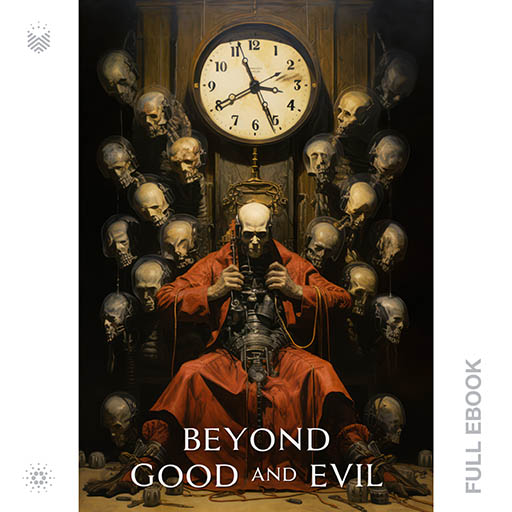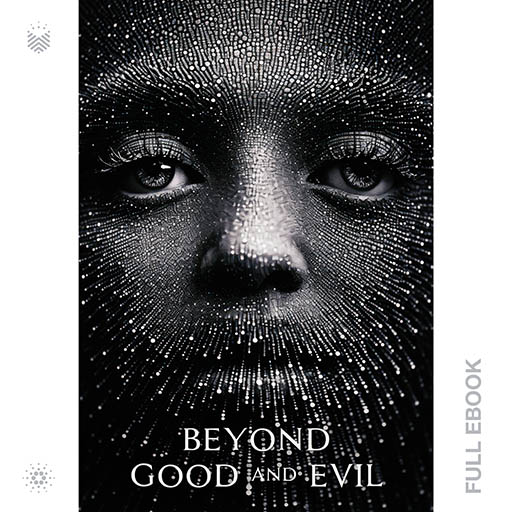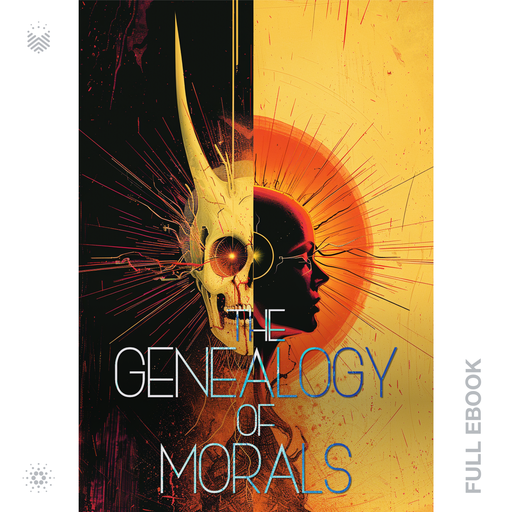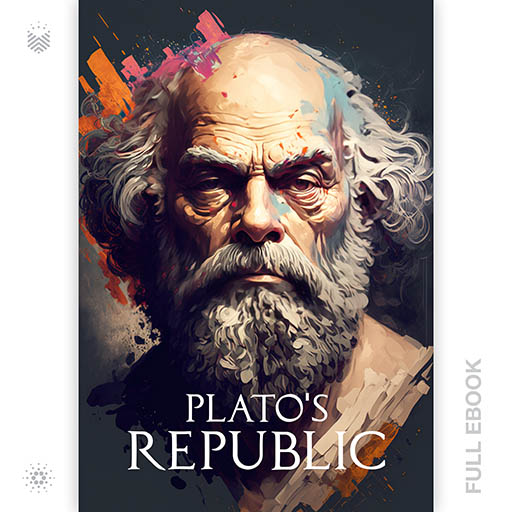Home » Books » Beyond Good and Evil
Beyond Good and Evil
Promotion - Available On:
jpg.store“Beyond Good and Evil” is a philosophical book written by the German philosopher Friedrich Nietzsche. It was first published in 1886. The full title of the work is “Beyond Good and Evil: Prelude to a Philosophy of the Future”
The book is structured as a series of aphorisms, short paragraphs that express philosophical ideas or observations. In “Beyond Good and Evil,” Nietzsche critiques traditional moral and philosophical concepts, challenging established notions of truth, morality, religion, and culture. He is known for his sharp and often provocative style of writing, using aphorisms to convey his thoughts in a concise and impactful manner.
Description
From Wikipedia: Beyond Good and Evil Prelude to a Philosophy of the Future is a book by philosopher Friedrich Nietzsche that covers ideas in his previous work Thus Spoke Zarathustra but with a more polemical approach. It was first published in 1886 under the publishing house C. G. Naumann of Leipzig at the author’s own expense and first translated into English by Helen Zimmern, who was two years younger than Nietzsche and knew the author.
According to translator Walter Kaufman, the title refers to the need for moral philosophy to go beyond simplistic black and white moralizing, as contained in statements such as “X is good” or “X is evil”. At the beginning of the book (2), Nietzsche attacks the very idea of using strictly opposite terms such as “Good versus Evil”
In Beyond Good and Evil, Nietzsche accuses past philosophers of lacking critical sense and blindly accepting dogmatic premises in their consideration of morality. Specifically, he accuses them of founding grand metaphysical systems upon the faith that the good man is the opposite of the evil man, rather than just a different expression of the same basic impulses that find more direct expression in the evil man. The work moves into the realm “beyond good and evil” in the sense of leaving behind the traditional morality which Nietzsche subjects to a destructive critique in favour of what he regards as an affirmative approach that fearlessly confronts the perspectival nature of knowledge and the perilous condition of the modern individual.
Numbered eBooks: 750
Number of Unique Covers: 287
Number of 1:1 Covers: 150
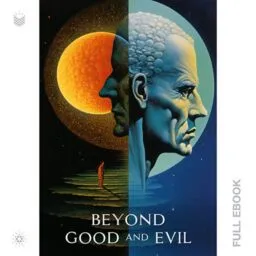
The Inner Reflection
47 Unique Designs
x 6 Numbered eBooks
= 282 NFT eBooks
eBook Numbers 468 – 749
(37.60% of Supply)

The Scholars
36 Unique Designs
x 5 Numbered eBooks
= 180 NFT eBooks
eBook Numbers 288 – 467
(24.00% of Supply)

The Author
30 Unique Designs
x 3 Numbered eBooks
= 90 NFT eBooks
eBook Numbers 198 – 287
(12.00% of Supply)

The Eternal Recurrence
24 Unique Designs
x 2 Numbered eBooks
= 48 NFT eBooks
eBook Numbers 150 – 197
(6.40% of Supply)

The Lonesome Philosopher
44 Unique Designs
x 1 Numbered eBooks
= 44 NFT eBooks
eBook Numbers 106 – 149
(5.87% of Supply)

Beyond Good and Evil
35 Unique Designs
x 1 Numbered eBooks
= 35 NFT eBooks
eBook Numbers 71 – 105
(4.67% of Supply)

The Free Spirit
30 Unique Designs
x 1 Numbered eBooks
= 30 NFT eBooks
eBook Numbers 41 – 70
(4.00% of Supply)

Outward Ego
28 Unique Designs
x 1 Numbered eBooks
= 28 NFT eBooks
eBook Numbers 13 – 40
(3.73% of Supply)
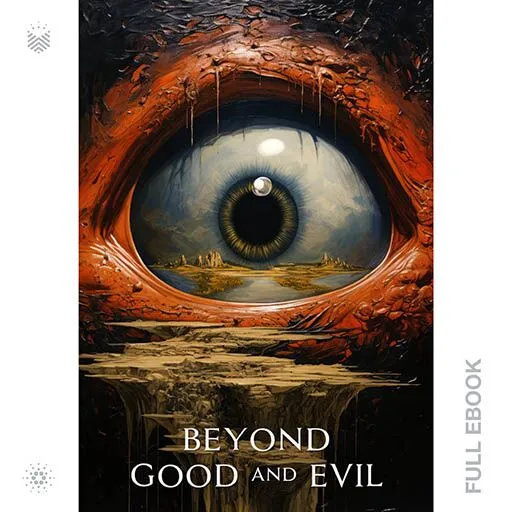
The Nihilism
13 Unique Designs
x 1 Numbered eBooks
= 13 NFT eBooks
eBook Numbers 0 – 12
(1.73% of Supply)
Details
Publisher : Book.io
Series : IRL
First Publication Date : 1886
Author : Friedrich Nietzsche
Genres: Existentialism, Philosophy, Treatise
Language : English
Word Count : 29,000
Format : DEA (Decentralized Encrypted Asset)
Read On : Book.io eReader dApp
Cover Art : Includes 4K hi-resolution book cover
Cardano Minting Details : Rare Evo Exclusive
Cardano Policy ID : bc5a925491648f7693da014ad89cf950c2221b2af80daa8c23f026b0
Author Info
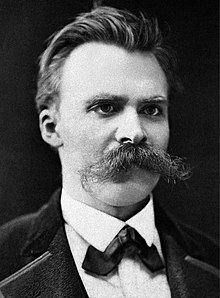
Friedrich Nietzsche
Friedrich Nietzsche (1844-1900), a German philosopher, cultural critic, and poet. Nietzsche authored seminal philosophical works such as "Thus Spoke Zarathustra," "Beyond Good and Evil," and "The Genealogy of Morals," celebrated for their bold ideas and poetic prose, which challenged traditional beliefs and earned him recognition as one of the era's most provocative and influential thinkers.
Nietzsche's enduring impact extends beyond philosophy to disciplines including literature, psychology, a… Read More
by Friedrich Nietzsche
Beyond Good and Evil challenges conventional notions of morality and truth, diving into the complexities of human existence, power dynamics, and individual freedom. Nietzsche confronts philosophical dogmas and societal constructs with boldness, inspiring readers to question the very foundation of their beliefs.
Read More
by Friedrich Nietzsche
Thus Spake Zarathustra translated from Thus Spoke Zarathustra is a philosophical novel written by the German philosopher Friedrich Nietzsche, published in four parts between 1883 and 1885. It is written in the form of a prose poem and is considered one of Nietzsche’s most significant and challenging works.
Read More
by Friedrich Nietzsche
In Friedrich Nietzsche’s seminal work, “The Genealogy of Morals,” readers are plunged into a philosophical exploration of the origins and development of moral values. Nietzsche challenges conventional notions of morality and traces its evolution from its primitive roots to its modern manifestations. With piercing insight and provocative rhetoric, he delves into the psychological, cultural, and historical forces that shape human ethics, offering a radical critique of traditional… Read More
by Friedrich Nietzsche
“Thus Spake Zarathustra” translated from “Thus Spoke Zarathustra” is a philosophical novel written by the German philosopher Friedrich Nietzsche, published in four parts between 1883 and 1885. It is written in the form of a prose poem and is considered one of Nietzsche’s most significant and challenging works.
Read More
You might also like
by Marcus Aurelius
A special edition release only for cNFTCon attendees. Meditations is a series of personal writings by Marcus Aurelius, Roman Emperor from AD 161 to 180, recording his private notes to himself and ideas on Stoic philosophy.
Read More
by Plato
“The Republic” is a philosophical dialogue written by the ancient Greek philosopher Plato. It is one of his best-known works and is widely considered a classic of Western philosophy. In the dialogue, Plato explores the nature of justice and the ideal state through a discussion between Socrates and several other characters.
Read More
by Niccolo Machiavelli
“The Prince,” a political treatise written by the Italian diplomat and philosopher Niccolò Machiavelli. “The Prince” was first published in 1532 and is considered one of the most influential works on political philosophy and statecraft.
The book offers advice and guidance to rulers on how to acquire and maintain political power. It’s known for its pragmatic and often controversial approach to politics, advocating for leaders to prioritize effective governance and the preservation of t… Read More
by Rudy Ruiz
A visionary neo-Western blend of magical realism, mystery, and horror, Valley of Shadows sheds light on the dark past of injustice, isolation, and suffering along the US-Mexico border.
Read More







